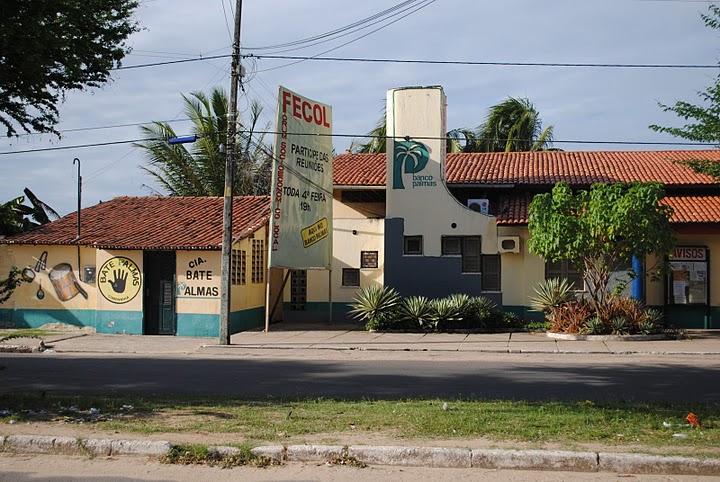In development, initiatives are often implemented with the underlying question of how it can be adapted and replicated. The pilot’s (un)successful factors are precious lessons to feed into new iterations, inspiring a recipe for others to follow. But even if the recipe emphasises the importance of local context, new initiatives can produce quite distinct results.
This can happen for a number of reasons, but for Community Development Banks (CDBs) in Brazil, our case study suggests that a perfect balance of community engagement and external support should be carefully considered before a new initiative is implemented.
The beginnings of Community Development Banks
In 1998, economically marginalised and abandoned by politicians, the residents of Conjunto Palmeiras decided to take charge of their destiny by coming together to work on solutions for local poverty. The community on the outskirts of Fortaleza, Brazil had been involved in over a decade of political engagement until residents finally received access to water, sanitation and electricity.
Building on years of community mobilisation, discussions led to creating a bank to provide microcredit to residents and local entrepreneurs to boost the struggling local economy. With initial capital provided from local NGOs, that was the beginning of Banco Palmas, which quickly adopted its own currency to ensure that the wealth generated by the residents, locally or through their work outside the community, would stay in the community.

In 2003, a new left-wing government with strong trajectory of collaboration with social movements stepped in and supported the movement. With the injection of political support and praise for Banco Palmas’s positive results, the community banking model gained momentum and spread the model across the country.
To support the emerging Community Development Banks (CDBs), the Brazilian Network of Community Banks (BNCB) was created to connect banks and provide guidance. However, despite sharing a terms of reference focused on community ownership and participation through forums, experiences vary considerably across the current 113 banks in the country.
In this context, IDS chose BNCB as one of the case studies for the Open Society Foundations funded research on linking economic advancements in participation.
The challenges of participation
The guidelines of the BNCB stipulate that it is the community itself that decides to create the bank, becoming the manager and owner and taking part in decision-making through associations, forums and councils. So, why do we then find significant differences among Community Development Banks, not only in terms of financial conditions, but in community participation? Looking into the history and status of three different Community Development Banks from the network provides some explanations.
For instance, Banco Palmas, the pioneer, maintains a considerably high level of community participation, with residents both recognising its legitimate development mission and maintaining its ownership. The broad and consistent community engagement embedded in its history provide the necessary social cohesion for this type of initiative to thrive.
External support (mostly financial or regulatory) from the government, private sector or NGOs are both extremely relevant and welcomed, but the bank seems to have solid enough foundations to overcome critical financial issues by relying on community dialogue, understanding and collaboration.
However, in other cases where the community is encouraged and supported to build its own CDB by local government or external actors, it seems to suffer from the lack of pre-existing social cohesion necessary to maintain the project.
For example, Banco Mumbuca (in the State of Rio de Janeiro) presents a healthy financial outlook that enables it to provide residents with loans at 0% interest. But residents fail to recognise it as their own because it was delivered to the community as a result of a public policy.
Banco Estrutural (in the Federal District) has struggled to establish its financial base and convince the wider community to participate. A local NGO who created the bank persistently strives to engage the community and convince residents to take ownership of the bank. The community’s lack of interest is also reflected on the high level of payment default faced by Banco Estrutural. Residents don’t see the bank as their own, so don’t have the same feelings of collective responsibility for success.
In short, it is not sufficient for a Community Development Bank be owned by local actors simply in name. For an initiative like Banco Palmas to be implemented somewhere else, the first assessment should focus on whether there is already a strong sense of social cohesion and community.
Participation is the key ingredient for the sustainability and financial success, and the engagement of residents dictates whether the banks sink or swim. Where communities don’t have the strong historical social cohesion story of Banco Palmas, the initiatives can still thrive if the community comes together to provide buy-in and commitment from the beginning. Participation and ownership by the wider community are essential for these projects to thrive.
Gabriel De Sousa Aragão has been working in the international development field for nearly 10 years, mainly focused on international cooperation projects. With a combined background of business and development, he is interested in the role of private sector in sustainable development. Gabriel is an IDS alum of the MA Globalisation, Business and Development.